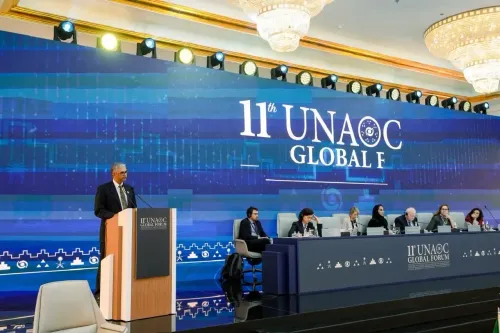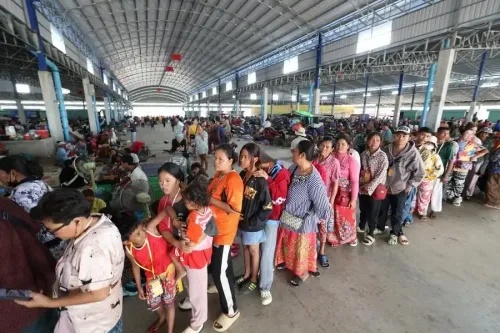Can India and Taiwan Cooperation Propel Sustainable Growth?

Synopsis
Key Takeaways
- India and Taiwan can advance SDG 12 and SDG 13 through cooperation.
- The partnership combines Taiwan's technology with India's renewable energy initiatives.
- Joint efforts in circular manufacturing can enhance sustainability.
- Urban food waste presents another collaboration opportunity.
- This partnership reinforces India’s global commitment to climate action.
New Delhi, Oct 26 (NationPress) As the global community gears up for the upcoming UN Climate Change Conference in Belem, Brazil, a recent media report has shed light on how India and Taiwan can collaboratively foster two vital Sustainable Development Goals - Climate Action (SDG 13) and Responsible Consumption and Production (SDG 12) - through meaningful cooperation and shared innovations.
The Taipei Times report emphasizes that climate action should not be perceived in isolation but as part of a larger transformation in consumption and production patterns.
It highlights that despite their significant differences in size and economic frameworks, both India and Taiwan possess complementary strengths that could contribute to a practical model for sustainable growth across Asia.
Taiwan's advanced technology sectors, essential for global supply chains in electric vehicles and smartphones, have developed sophisticated recycling and waste reduction systems.
However, the island still grapples with the challenge of decreasing its dependence on energy-intensive materials.
On the other hand, India is experiencing a surge in domestic demand for steel, cement, and plastics as income levels rise, which poses threats of resource-heavy growth, even as it leads in affordable renewable energy solutions and community-oriented sustainability initiatives.
The report contends that merging Taiwan's technological prowess with India's scalable and cost-effective clean energy projects could strengthen resilience in a carbon-constrained global economy. Joint efforts in circular manufacturing - such as electronics recycling, industrial heat recovery, and waste reduction in supply chains - could lay the groundwork for green industrial policies in both nations.
Moreover, food systems present another avenue for collaboration. Both countries are confronting increasing urban food waste and changing dietary habits, and they could work together to devise solutions aimed at reducing emissions associated with consumption.
This partnership offers Taiwan an opportunity to assert its leadership in sustainable production and climate innovation, especially given its exclusion from formal UN processes.
For India, it bolsters its reputation as a nation dedicated to practical, solution-oriented climate action.
Furthermore, the report underscores that linking SDG 12 and SDG 13 through joint policies and initiatives could enable both India and Taiwan to achieve prosperity without depleting the planet's resources - a model the world desperately needs.










